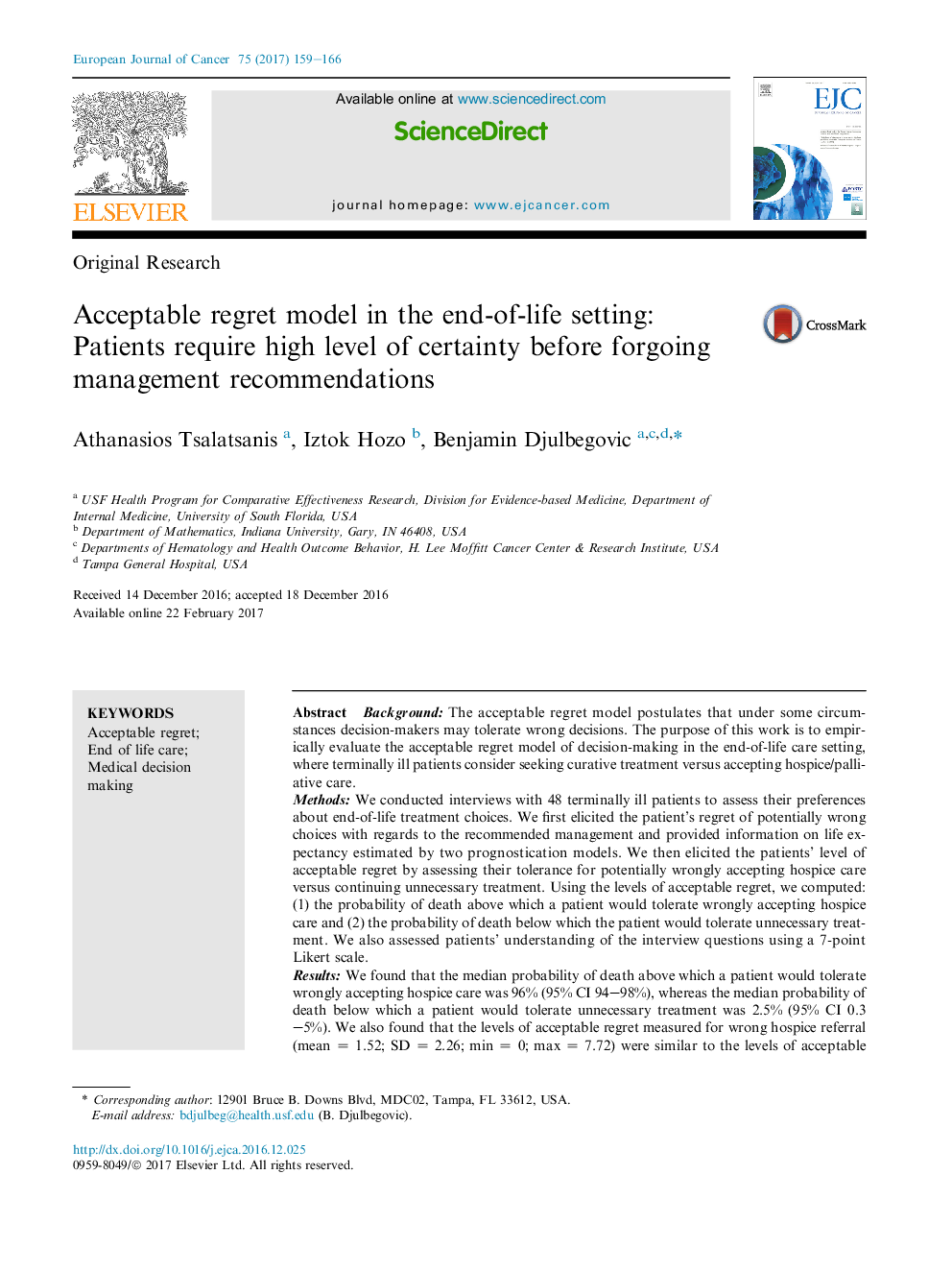| کد مقاله | کد نشریه | سال انتشار | مقاله انگلیسی | نسخه تمام متن |
|---|---|---|---|---|
| 5526270 | 1547057 | 2017 | 8 صفحه PDF | دانلود رایگان |
- End-of-life decisions involve substantial uncertainty.
- Every patient could face the consequences of a wrong decision.
- The acceptable regret model postulates that under some circumstances patients may tolerate wrong decisions.
- We used acceptable regret to investigate when patients are willing to forgo life-prolonging treatment versus hospice care.
- We showed that there is a requirement for high level of certainty before accepting recommended management in end-of-life care.
BackgroundThe acceptable regret model postulates that under some circumstances decision-makers may tolerate wrong decisions. The purpose of this work is to empirically evaluate the acceptable regret model of decision-making in the end-of-life care setting, where terminally ill patients consider seeking curative treatment versus accepting hospice/palliative care.MethodsWe conducted interviews with 48 terminally ill patients to assess their preferences about end-of-life treatment choices. We first elicited the patient's regret of potentially wrong choices with regards to the recommended management and provided information on life expectancy estimated by two prognostication models. We then elicited the patients' level of acceptable regret by assessing their tolerance for potentially wrongly accepting hospice care versus continuing unnecessary treatment. Using the levels of acceptable regret, we computed: (1) the probability of death above which a patient would tolerate wrongly accepting hospice care and (2) the probability of death below which the patient would tolerate unnecessary treatment. We also assessed patients' understanding of the interview questions using a 7-point Likert scale.ResultsWe found that the median probability of death above which a patient would tolerate wrongly accepting hospice care was 96% (95% CI 94-98%), whereas the median probability of death below which a patient would tolerate unnecessary treatment was 2.5% (95% CI 0.3-5%). We also found that the levels of acceptable regret measured for wrong hospice referral (mean = 1.52; SD = 2.26; min = 0; max = 7.72) were similar to the levels of acceptable regret measured for unnecessary treatment (mean = 2.10; SD = 4.33; min = 0; max = 23) (KW test; p = 0.68) indicating that acceptable regret levels for either of the wrong decisions is felt similarly. The results were independent of the estimated probability of death communicated to patients before the acceptable regret interview.ConclusionsWe have elicited empirical data that corroborated the acceptable regret hypothesis. The requirement for high level of certainty before accepting recommended management may explain the difficulties related to decision-making in the end-of-life setting.
Journal: European Journal of Cancer - Volume 75, April 2017, Pages 159-166
